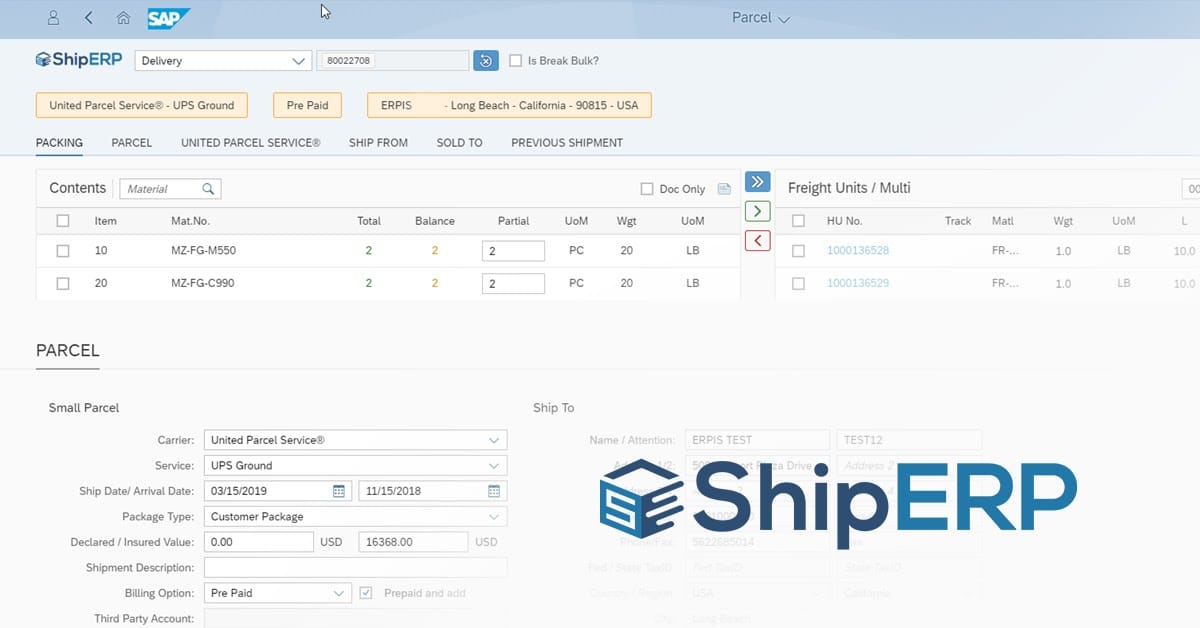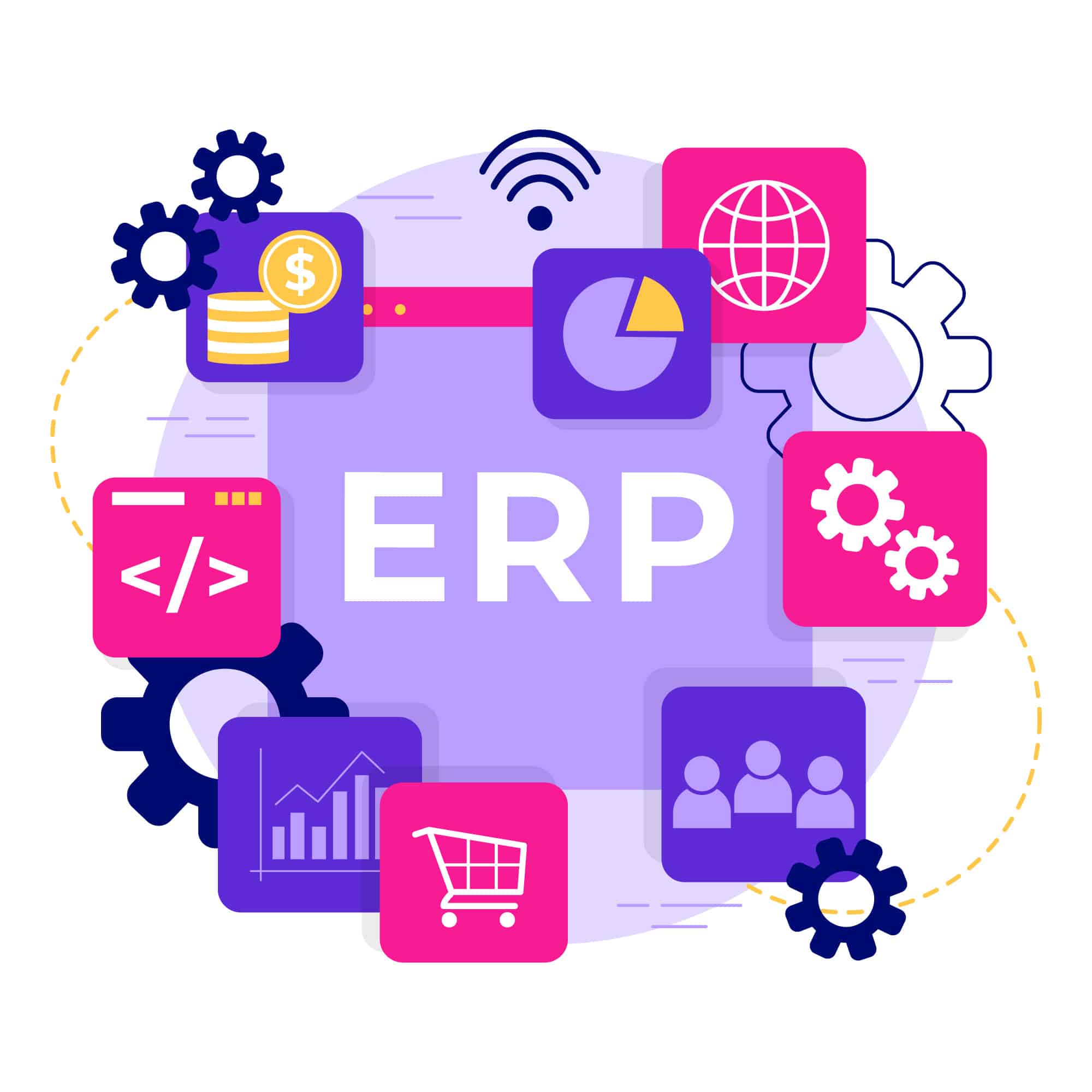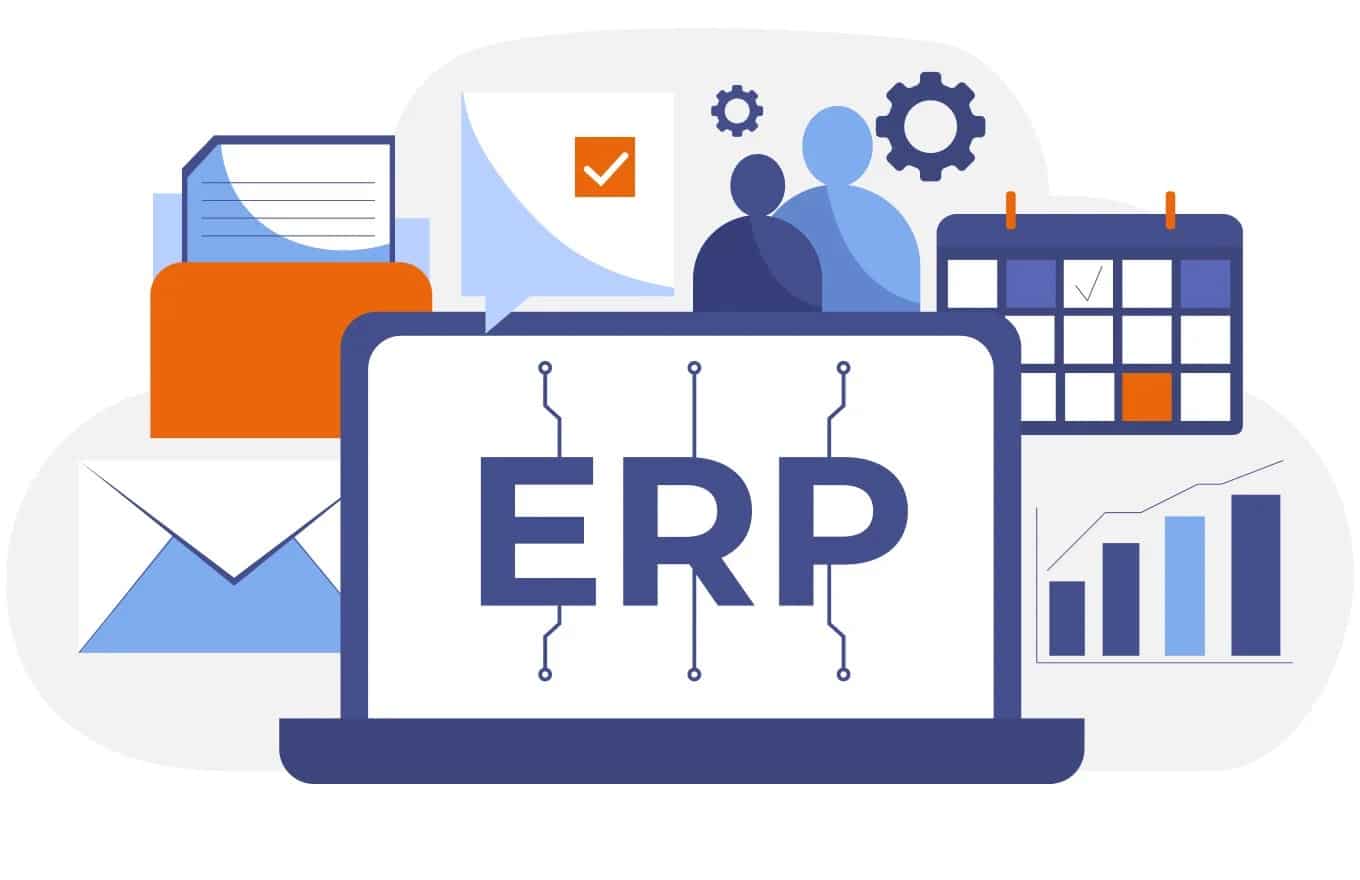In today’s fast-paced world, process manufacturing industries face the challenge of maintaining efficiency and competitiveness while complying with strict regulations. This is where ERP (Enterprise Resource Planning) software comes into play. But what exactly is erp software for process manufacturing, and why is it crucial for your industry?

Defining ERP software for process manufacturing: ERP software specifically designed for process manufacturing industries helps streamline and integrate various business processes, such as inventory management, production planning, quality control, and supply chain management. It provides a centralized platform that allows manufacturers to efficiently manage their operations and make data-driven decisions.
Importance of implementing ERP software: In an industry where precision and compliance are paramount, ERP software plays a vital role. By implementing ERP software, process manufacturing companies can optimize their operations, eliminate manual processes, and reduce errors. It empowers businesses to enhance productivity, minimize waste, and improve overall efficiency.
Imagine having a comprehensive system that seamlessly integrates different departments, enabling real-time visibility into your manufacturing processes. With ERP software, you can effectively manage your inventory, optimize production scheduling, monitor quality control, and ensure regulatory compliance. By automating these critical aspects, you can focus on what truly matters – growing your business.
In the following sections, we will explore the various benefits of ERP software for process manufacturing and the key features to consider when choosing the right solution for your industry. So, let’s dive deeper into how ERP software can revolutionize your process manufacturing business!
Benefits of ERP Software for Process Manufacturing
In the complex world of process manufacturing, implementing ERP software can bring a multitude of benefits to your business. Let’s explore how ERP software can revolutionize your operations and drive success in the industry.
Streamlining and Automating Manufacturing Processes
With ERP software, you can streamline and automate your manufacturing processes from end to end. By integrating various departments and workflows, you can eliminate manual data entry, reduce errors, and accelerate production cycles. From raw material procurement to finished goods, ERP software ensures a seamless flow of information, enabling you to optimize resource allocation and minimize downtime.
Enhancing Inventory Management and Tracking
Maintaining optimal inventory levels is crucial for process manufacturing industries. ERP software provides real-time visibility into your inventory, enabling you to track materials, monitor stock levels, and manage replenishment efficiently. With accurate inventory data, you can avoid overstocking or stockouts, optimize storage space, and minimize holding costs. This not only improves operational efficiency but also enhances customer satisfaction by ensuring timely deliveries.
Improving Supply Chain Management
Efficient supply chain management is essential for process manufacturing businesses. ERP software allows you to integrate and synchronize your supply chain activities, from procurement to distribution. By automating processes such as order management, demand forecasting, and supplier collaboration, you can optimize your supply chain, reduce lead times, and enhance overall responsiveness. This enables you to meet customer demands effectively while reducing costs and improving profitability.
Increasing Productivity and Efficiency
With ERP software, you can boost productivity and efficiency across your organization. By automating routine tasks, standardizing processes, and providing real-time access to information, ERP software empowers employees to work more efficiently. By eliminating manual data entry, reducing paperwork, and streamlining workflows, your workforce can focus on value-added activities that drive business growth.
Ensuring Regulatory Compliance
Process manufacturing industries are subject to stringent regulatory requirements. ERP software helps you stay compliant by providing tools for quality control, traceability, and documentation. With built-in compliance features, you can ensure adherence to industry standards and regulations, reducing the risk of fines, recalls, or reputational damage. ERP software enables you to track and document every step of your manufacturing processes, ensuring transparency and accountability.

Enhancing Data Accuracy and Reporting Capabilities
Accurate and timely data is crucial for making informed business decisions. ERP software centralizes data from various departments, providing a single source of truth. This ensures data integrity, eliminates data silos, and enables comprehensive reporting and analytics. With customizable dashboards and reports, you can gain valuable insights into your operations, identify trends, and make data-driven decisions that drive growth and profitability.
In the next section, we will delve into the key features to consider when choosing ERP software for process manufacturing. So, let’s explore the essentials that will empower your business to thrive in the industry.
Key Features to Consider in ERP Software for Process Manufacturing
In the vast landscape of ERP software options, it’s crucial to identify the key features that cater specifically to the unique needs of process manufacturing industries. Let’s explore the essential functionalities to consider when choosing an ERP solution for your business.
A. Recipe Management and Formulation
Process manufacturers heavily rely on precise formulations and recipes to create their products. A robust ERP software should offer comprehensive recipe management capabilities, allowing you to define and maintain accurate formulas. By centralizing this critical data, you can ensure consistency, minimize errors, and easily adjust formulations as needed. Additionally, features like version control and revision history enable efficient tracking and management of recipe changes.
B. Batch Tracking and Traceability
Traceability is of utmost importance in process manufacturing, especially when it comes to meeting regulatory requirements and maintaining product quality. An ERP system with batch tracking capabilities enables you to track and trace every ingredient and component used in the production process. This helps you maintain product integrity, identify the source of any issues or recalls, and ensure compliance with industry standards.
C. Quality Control and Compliance
Quality control is a key aspect of process manufacturing, and an ERP software should incorporate robust quality management functionalities. From capturing and analyzing quality data to conducting inspections and managing non-conformance, a comprehensive ERP solution empowers you to maintain stringent quality standards and comply with industry regulations. Integration with quality control tools and automated workflows further streamline the quality control process.
D. Production Scheduling and Planning
Efficient production scheduling and planning are vital to optimize resource utilization and meet customer demands. An ERP system designed for process manufacturing should provide advanced production scheduling capabilities. With features like capacity planning, real-time visibility into production orders, and optimization algorithms, you can achieve optimal production sequences, minimize downtime, and ensure on-time deliveries.
E. Inventory Management and Optimization
Inventory management is a complex task in process manufacturing, as it involves handling multiple ingredients, raw materials, and finished products. An ERP software should offer robust inventory management features, such as real-time inventory tracking, demand forecasting, and automatic replenishment. By optimizing inventory levels, you can reduce carrying costs, minimize stockouts, and achieve better inventory turnover ratios.
F. Supplier Management and Procurement
Effective supplier management is crucial for maintaining a reliable supply chain. An ERP solution should provide features to streamline supplier management and procurement processes. This includes features like supplier performance tracking, automated purchase order generation, and integration with supplier portals. With a comprehensive supplier management system, you can ensure timely deliveries, negotiate favorable terms, and build strong relationships with your suppliers.
By considering these key features in ERP software for process manufacturing, you can select a solution that aligns with your industry-specific requirements and maximizes your operational efficiency. In the next section, we will discuss the factors to consider when choosing the right ERP software for your process manufacturing business.
Factors to Consider When Choosing ERP Software for Process Manufacturing
When it comes to selecting the right ERP software for your process manufacturing business, there are several crucial factors to consider. By carefully evaluating these factors, you can ensure that the chosen solution aligns with your industry-specific needs and enables you to maximize the benefits. Let’s explore these factors in detail:
A. Scalability and Flexibility
As your business grows, it is essential to have an ERP software that can scale alongside your operations. Look for a solution that offers scalability and flexibility, allowing you to add new modules, users, and functionalities as needed. This ensures that your ERP software can adapt to your evolving business requirements without the need for a complete overhaul.

B. Industry-Specific Functionality
Process manufacturing industries have unique operational requirements that differ from other sectors. Therefore, it is crucial to choose an ERP software that offers industry-specific functionality. Look for features like recipe management, batch tracking, and quality control that cater specifically to the intricacies of process manufacturing. This ensures that your software can effectively address your specific needs and challenges.
C. Integration Capabilities
Seamless integration between different systems and departments is essential for efficient operations. When selecting ERP software, consider its integration capabilities with other business systems such as accounting, CRM, and inventory management. Robust integration capabilities eliminate data silos and enable real-time information sharing, enhancing overall visibility and decision-making.
D. User-Friendly Interface and Ease of Use
Implementing ERP software should simplify your operations, not complicate them. Look for a solution that offers a user-friendly interface and ease of use. A well-designed software with intuitive navigation and clear workflows ensures that your employees can quickly adapt to the system and utilize its full potential without extensive training.
E. Customization and Configuration Options
Every process manufacturing business has its unique workflows and requirements. Choose an ERP software that provides customization and configuration options, allowing you to tailor the system to your specific needs. This ensures that the software aligns with your existing processes and maximizes efficiency without requiring you to compromise on your established practices.
F. Cost and Return on Investment
Investing in ERP software is a significant decision for any business. Consider the total cost of ownership, including implementation, licensing, maintenance, and support costs. Additionally, evaluate the potential return on investment (ROI) the software can provide. Look for case studies, testimonials, and industry research to assess the software’s track record in delivering tangible benefits to process manufacturing companies.
By considering these critical factors, you can select an ERP software solution that empowers your process manufacturing business to thrive and stay competitive in the rapidly evolving industry landscape. Now, let’s move on to exploring real-life case studies that showcase the successful implementation of ERP software in process manufacturing industries.
Case Studies: ERP Software Transforming Process Manufacturing Industries
A. Company A: Achieving Cost Savings and Improved Efficiency with ERP Software
When Company A, a leading process manufacturing company, implemented ERP software, they witnessed significant cost savings and improved operational efficiency. By streamlining their manufacturing processes, they were able to eliminate redundant tasks and decrease production cycle times. The ERP software provided real-time visibility into their inventory levels and demand forecasts, allowing them to optimize their supply chain and reduce excess inventory. As a result, Company A experienced reduced costs in inventory holding, warehousing, and transportation.
Furthermore, ERP software enabled seamless integration between their production lines and back-office functions. This integration allowed for better coordination across departments, reducing communication gaps and delays. By automating manual data entry and providing accurate production data, ERP software eliminated errors and improved overall efficiency. Company A’s employees were able to focus on value-added tasks instead of spending time on repetitive administrative work.
B. Company B: Enhancing Inventory Management and Supply Chain Visibility through ERP Software
Company B, a process manufacturing company with complex supply chain requirements, faced challenges in maintaining accurate inventory records and managing their suppliers. However, after implementing ERP software, they experienced a significant transformation. The software provided real-time visibility into their inventory levels, enabling them to track and manage their materials effectively. With better forecasting and demand planning capabilities, Company B was able to optimize their inventory levels, reducing excess stock and minimizing stockouts.
Moreover, ERP software enhanced their supply chain visibility. By integrating their suppliers into the system, they could track supplier performance, monitor lead times, and manage order fulfillment. This increased transparency allowed Company B to proactively address any supply chain disruptions and improve their overall responsiveness to customer demands. By leveraging the power of ERP software, Company B was able to achieve better control over their inventory and build stronger relationships with their suppliers.
C. Company C: Ensuring Compliance and Regulatory Adherence with ERP Software
For Company C, a process manufacturing company operating in a highly regulated industry, maintaining compliance with various regulations was a top priority. By implementing ERP software, they were able to ensure adherence to regulatory requirements and streamline their compliance processes. The software provided robust quality control features, enabling them to track and document every stage of production. This allowed Company C to demonstrate compliance during audits and inspections easily.
Moreover, ERP software provided traceability capabilities, allowing Company C to track raw materials and finished products throughout the production process. This traceability not only ensured compliance but also enabled swift and efficient product recalls, if necessary. The software’s built-in regulatory reporting functionalities simplified the generation of compliance reports, saving time and effort for Company C’s compliance team.

These case studies demonstrate the tangible benefits that ERP software brings to process manufacturing industries. From cost savings and improved efficiency to enhanced inventory management and regulatory compliance, ERP software is a game-changer for businesses seeking to thrive in the competitive landscape. The next section will delve into the factors to consider when choosing the right ERP software for your process manufacturing needs.
Conclusion
In conclusion, implementing ERP software for process manufacturing is an essential step towards streamlining and optimizing your operations. This comprehensive solution empowers your business to achieve higher levels of efficiency, productivity, and compliance. By centralizing and automating critical processes, ERP software allows you to focus on growth and innovation.
ERP software for process manufacturing offers a range of benefits that can revolutionize your business. It streamlines manufacturing processes, enhances inventory management, improves supply chain visibility, and ensures regulatory compliance. With its robust features, such as recipe management, batch tracking, and quality control, ERP software provides the necessary tools to meet industry-specific requirements.
When selecting an ERP solution for your process manufacturing business, consider factors like scalability, flexibility, and integration capabilities. Look for industry-specific functionality that aligns with your unique needs. A user-friendly interface and customization options will make the software easier to navigate and adapt to your specific workflows.
Remember, the future of process manufacturing lies in leveraging technology to gain a competitive edge. By implementing ERP software, you equip your business with the tools necessary to stay ahead in the dynamic market landscape. So, take the leap and embrace ERP software to transform your process manufacturing operations.
At erp.vdict.pro, we understand the challenges faced by process manufacturing industries. Our ERP software is specifically tailored to meet your needs, offering a comprehensive solution that optimizes your operations and drives growth. Contact us today to learn more about how our ERP software can revolutionize your process manufacturing business.





